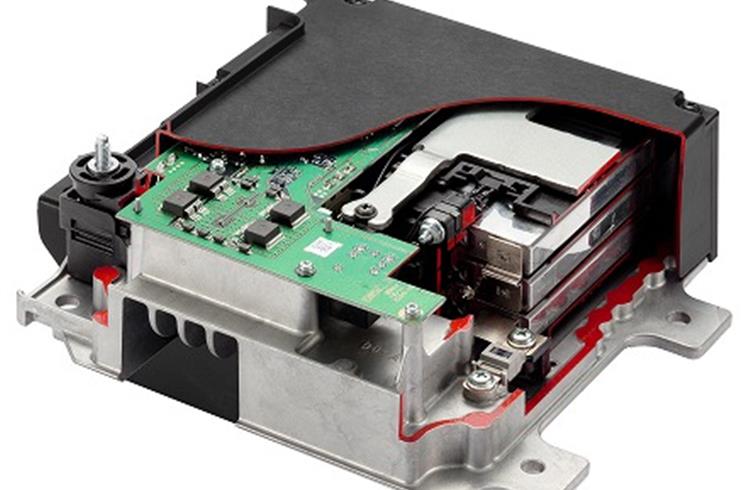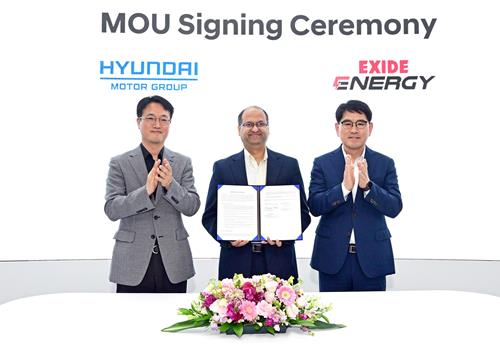SMEV seeks reduction of GST on EV batteries
The unreasonably high rate of GST is one of the key impediments for faster adoption of electric vehicles in the country and as one of the main stumbling block in achieving the electric-green vehicle adoption target.
The Society of Manufacturers of Electric Vehicles (SMEV), the nodal body of electric vehicle manufacturers in India, has urged the government to reduce the GST charged on batteries used in electric vehicles from the current 28 percent and make it equivalent to the GST charged on electric vehicles.
The body says the unreasonably high GST is one of the key impediments for faster adoption of electric vehicles in the country and as one of the main stumbling block in achieving the electric-green vehicle adoption target as visualised in Government of India’s Faster Adoption and Manufacturing of (Hybrid &) Electric Vehicles (FAME) policy rolled out two years back with much fanfare.
“GST reduction is critical to achieve FAME targets and galvanize E-vehicle industry,” said Sohinder Gill, Director Corporate Affairs, SMEV. He further points out that for supporting the government’s ambitious vision of selling only e-vehicles in the country by 2030, and to help the industry grow at a faster pace, SMEV expects the government to take immediate remedies and proactive measures which have been identified by SMEV and were also known to the government.
The nodal body has identified certain areas where it says requires immediate intervention by the government, which relates to streamlining and ironing out policy details, adequate fund allocation in Budget 2018-19.
Launch of next phase of FAME Scheme for a longer period of 6 years and its time-bound implementation: We expect the government to timely announce the launch of the next phase of FAME scheme for a longer period. Due to high ownership cost of EVs in the present scenario, the approach to Demand Incentives (DI) and Viability Gap Funding (VGF) needs to be changed and the existing subsidy module needs to be enhanced for the next 6 years as compared to the previous short term periods i.e. 6 months - 1 year.
Reduction of GST on Advanced Battery used in EVs: Under the new GST regime, Lithium-ion batteries used in EVs have become significantly costlier because of the 28 percent GST, when sold separately as against the GST rate charged when sold with the vehicles. Higher tax on batteries is impacting retail sales of electric two-wheelers as dealers generally do not maintain an equal inventory of vehicles and batteries. It is leading to a big dampener for the electric two-wheeler customers. SMEV expects uniform GST rate for EVs (electric vehicles) and batteries at point of sale.
Rebate on Income Tax for consumer adopting Electric Vehicles: Many countries such as Norway, France, Canada, Denmark and Netherlands have already implemented this policy in their respective systems and have garnered a plethora of benefits out of it. For example, Norway now has 36 percent of EVs on road due to such supportive policies. Similar policy can be introduced in India as well as a step to encourage faster e-vehicle adoption wherein the government need not spend money by utilising public funds to make any transactions. It will further encourage customers to purchase more EVs in the upcoming future as well.
Indigenisation of EV components: India having a less number of EV manufacturers calls for more indigenisation to be done in order to stand equal to other countries. So far the industry has been importing most the critical components like batteries, motor controllers etc, which leads to an increase in the price of EVs. For this, the government can take special measures to encourage the manufacturer to produce these components locally.
SMEV says it is hopeful that the coming budget will incorporate its recommendations in the interest of new greener future.
RELATED ARTICLES
IIT Bombay inaugurates Arun Firodia Research Floor
IIT Bombay, one of India’s top technical and research institutions, honours Kinetic Group chairman Dr Arun Firodia, one ...
Maruti Suzuki expands capacity at Manesar plant by additional 100,000 units
New assembly line at Plant A expands total manufacturing capacity at the Manesar plants to 900,000 units per annum. Alon...
Hyundai and Kia partner Exide Energy to produce LFP batteries in India
Partnership with Exide Energy enables Hyundai Motor and Kia to equip future EVs in the Indian market with locally produc...





 By Autocar Pro News Desk
By Autocar Pro News Desk
 21 Dec 2017
21 Dec 2017
 4786 Views
4786 Views









